
Understanding Land Leasing: Benefits and Drawbacks
Understanding the intricacies of land leasing is essential for maximizing real estate income. Leasing land instead of selling it offers numerous benefits, including the potential for steady passive income and tax advantages.
Property owners can retain ownership by renting out land while creating a consistent revenue stream. This arrangement allows them to capitalize on rising property values without relinquishing their asset.
Additionally, leasing agreements can be tailored to suit specific needs, giving owners flexibility in terms and conditions. However, there are drawbacks to consider.
Landlords must manage tenant relationships and maintain the property, which can entail ongoing responsibilities and costs. Furthermore, market fluctuations and economic downturns might affect rental demand and income stability.
Despite these challenges, understanding the benefits and drawbacks of land leasing can help real estate investors make informed decisions that align with their long-term financial goals.
Exploring Different Types of Land Leases: Short-term vs Long-term
Land leases come in many forms, including short-term and long-term ones. You should learn about them to make the most money from real estate by selling off land. Short-term land leases give both the owner and the renter much freedom. This makes them ideal for businesses or events that only last a short time.
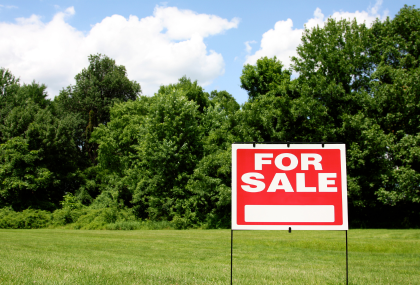
These deals can bring in more money because they can be changed to fit changing market conditions. Long-term land leases, on the other hand, protect you and lower your vacancy risk over time by giving you a steady flow of income.
They’re suitable for renters who want to stay put, like farms or business parks that need to spend a lot of money building things up. Long-term contracts often include clauses that allow the rent to be raised or reviewed more often to ensure it stays in line with market trends.
Landowners’ best rental deals depend on their financial goals and willingness to take risks. This way, they can be sure that their real estate assets are utilized well.
Financial Implications of Leasing vs Selling Property
If a landlord wants to make the most money from their land, they might want to rent it out instead of selling it. When you rent out your home, you still own it, and as time goes on, its value can go up, which is good for you.
Rent will always bring you money, which can be very helpful when the market is stable or going up. When you sell something, you only get paid once. Some people even save on taxes when renting instead of selling because rental income is taxed differently than capital gains from a sale.
As long as they own the land, people can use it as security for loans or other investments. It is also possible to set up rental deals so that the rent regularly rises based on inflation or changes in the market. Prices won’t go up, and the property will still be able to make money even if the economy changes.
A smart long-term financial move is to lease instead of sell. This will help you build wealth over time and immediately give you cash.
How to Evaluate the Potential of Your Land for Rental
When you think about renting out your land, you must remember a few essential things to get the most money. First, look at the location. How close a property is to cities or popular recreation areas can significantly affect how many people want to share it.
You should look at your area’s zoning rules and land use restrictions because they will tell you what kinds of activities or projects you can do on your land. Look at the trends in the local market to find out what kinds of land rentals are in high demand, such as for farming, pleasure, or business growth.
Check how easy it is to get to your land. Properties close to big roads or highways tend to attract more interest from people who want to rent them. Also, consider any services, water sources, buildings, or other infrastructure that are already there and could make your land more appealing and valuable for people who want to rent it.
Lastly, determine how much money you could make by looking at similar land rentals to understand the going rate and ensure the business will make money. We Buy Land Quick is a local land buyer, and we buy land quickly and fast for cash. Don’t just take our word for it—learn why homeowners trust us and see how simple our process is. Curious about whether you can build on your land? Read about zoning rules and how they can affect building on your own land.
Assessing Market Value: Setting the Right Price for Land Rental
To rent your home for the most money, you need to know its market value. You must also know local real estate trends and what makes your land essential to find a reasonable rental rate that still makes you money.
Location, ease of access, zoning rules, and the land’s growth potential affect how much it costs to rent land. As part of a complete market study, you should look at similar homes and their rental rates. This will show you the current demand and how much things are priced.
Price changes can also be smarter, considering how land use demand changes over the year. By researching the market well, landowners can find the best rental price for their properties and be sure they will bring in steady income. This will help them find people they can trust.
Legal Considerations in Renting Out Land
Landlords and renters need to know the law when renting out land to make the most money from real estate. Knowing the local zoning laws and land use rules is crucial because they say what activities can be done on the property.
To protect their interests, landlords should write detailed lease papers that spell out the use rules, when rent is due, and who is responsible for repairs. To avoid legal problems, it’s also important to ensure the lease follows all state and federal laws.
Landowners should also consider liability issues and ensure they have the proper insurance to cover any risks arising from tenants’ actions. Knowing how rental income affects taxes can help landowners manage their money and meet their financial obligations.
Talking to a real estate lawyer can help you navigate these complicated legal issues and ensure the rental process goes smoothly.
Environmental and Zoning Regulations Impacting Land Rentals
If you want to rent out your land instead of selling it, you need to know about the environmental and zoning laws that can significantly affect renters. These rules usually say what kinds of activities can happen on a particular piece of land, which affects its ability to rent out and make money.
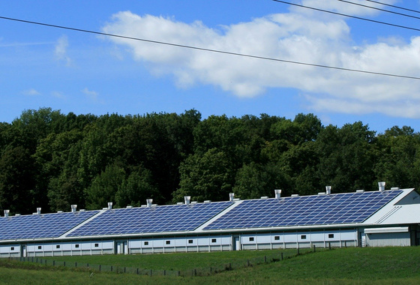
Zoning laws vary widely and can affect whether land can be leased for farming, business growth, or recreation. Environmental regulations may aim to protect ecosystems, limiting certain types of growth or requiring specific conservation measures.
Following these laws not only keeps landowners out of hefty fines and legal trouble, but it also makes the property more appealing to possible tenants who want to know that their business will be legal and last. By carefully studying these rules, landowners can sell their properties in the best way, make the most of rental agreements, and make the most money from real estate by using their properties in ways that are allowed by the law and that are good for the environment.
Tax Implications and Benefits of Leasing Out Your Property
If you rent out your land instead of selling it, you might get big tax breaks that help you get the most money out of your property. You can get tax breaks and credits because you own the land even though you are renting it out.
One great thing about it is that you can write off costs like rent and management fees and make changes to your land to make it more rentable. Also, if you rent out your home, you might be able to get tax breaks for any buildings or changes you make to the land.
The taxed income decreases, and the rental income increases by the same amount. It can also be smart to wait to pay capital gains taxes when you sell something because you don’t see a gain immediately.
After a Section 1031 swap, you will still own the property, so you can use it again if you want to trade in other real estate. Letting is a good option for people who want to get the most out of their money over the long run while keeping the value of their assets.
Crafting a Comprehensive Land Lease Agreement
You can make the most money renting out your property instead of selling it. That’s why you need to make a detailed land lease deal. In a well-written lease deal, the landlord and the renter should know their rights and responsibilities. This tells everyone what they need to do.
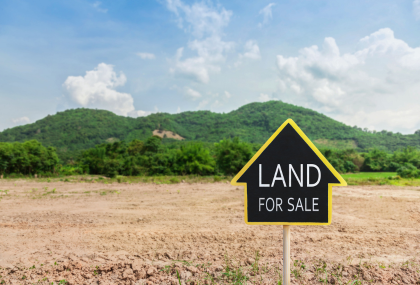
A land lease should also include details such as the lease’s duration, cost, renewal process, and use. It’s also a good idea to include maintenance tasks, insurance requirements, and ways to settle disagreements in the contract, which will help keep things clear.
By giving these things names, landlords can protect their investment and clarify to renters how to use the property. A detailed lease agreement protects you and makes the tenants happy by telling them what to expect.
If your agreements are written correctly, keeping the same tenants or finding new ones will be easy when the lease is up. After this, you’ll be able to make steady money from your real estate asset. At We Buy Land Quick, we are investor land buyers in Austin, and we buy fast for cash and skip the usual listing process. We’ve helped countless Austin landowners sell their land quickly and easily. Sell your Arlington land for cash, no repairs or cleaning are needed.
Marketing Strategies for Advertising Land for Lease
Putting up ads for land for rent on the Internet is integral to any marketing plan. The Internet and social media are great places to find people who want to rent land.
People who want to rent land might be interested in high-quality pictures and detailed descriptions that showcase its unique features and different uses. When people search for land to rent, your property should come up high in the results. This is called search engine optimization (SEO).
It is important to stress the benefits of leasing over selling, such as being flexible and making money over the long term. These benefits can appeal to people or businesses that need short-term or specific-use space. You can reach more people if you connect with other workers whose clients may be looking for land leases. For example, you can meet real estate agents in your area and take your business to events.
People may also be interested in direct mail campaigns sent to specific businesses that would benefit from renting your type of land. This is especially true if the messages are personalized, stressing how the location meets their needs.
Risk Management Strategies in Renting Out Your Property
To make the most money from real estate, you should give out land instead of selling it and be smart about handling risk. One important thing to do is conduct thorough rental screenings to find reliable renters who will take care of the property and follow the lease rules.
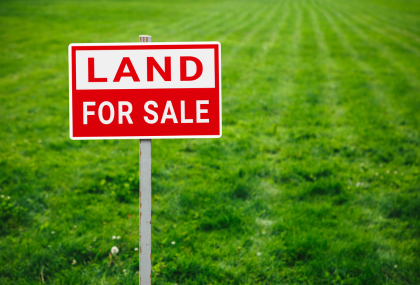
Making a thorough lease agreement that lists all of your responsibilities, such as when to pay and do repairs, can help you avoid problems and protect your interests. Also, it’s essential to know the rules and laws about zoning in your area so you don’t get in trouble with the law.
When you have regular property checks, you can find maintenance issues early on, which saves you money on repairs later on. Of course, having enough insurance protects you against things you couldn’t have planned for, like natural disasters or liability claims.
You can spread your risk and ensure steady income streams even if one area is in a downturn by renting out land for farming, business growth, or recreation. You might be able to run your business more efficiently, keep your tenants happy, and avoid losing money or having units empty because of bad management if you hire professional property management services.
Common Mistakes to Avoid When Renting Out Your Land Property
To get the most money from renting out your land, it’s essential to avoid making some common mistakes that can hurt your profits and make your tenants unhappy. One mistake that people often make is not doing thorough background checks on possible tenants. This can cause problems with the lease and conflicts in the future.
Another mistake is not setting competitive rental rates, which can mean overpricing or underpricing the property. This can keep good tenants away or lower your potential earnings. Not taking care of the land properly can also cause it to lose value and make tenants unhappy, hurting long-term income.
Also, forgetting the importance of a thorough lease agreement that spells out everyone’s duties and expectations can cause problems and legal issues. Filing taxes and planning for your money can be hard if you don’t keep correct records of the rental property’s income and expenses.
Not knowing the local zoning laws and rules about renting out land can also be very difficult, as you could get fined or be limited in how you use your property. When renting out land as an innovative real estate business, these common mistakes show how important it is to be careful with management.
Can I Rent Out a Plot of Land?
Yes, you can rent out a plot of land, which can be a lucrative way to maximize your real estate income. Renting out land instead of selling it allows you to retain ownership while generating a steady stream of passive income.
This approach offers flexibility, as you can lease the land for various purposes such as agriculture, parking lots, recreational activities, or even renewable energy projects like solar farms. Also, leasing land allows you to benefit from potential future appreciation in property value without losing control over your asset.
By renting out your plot of land, you maintain long-term investment potential and can easily adapt to changing market conditions or personal needs. This strategy ensures a regular cash flow and keeps your options open for future development or resale at an advantageous time.
Is Renting Land a Good Idea?
Renting land can be a highly advantageous strategy for maximizing real estate income. Unlike selling, renting out land provides a steady stream of passive income while allowing the owner to retain ownership and benefit from potential appreciation.
This approach particularly appeals to areas with high demand for agricultural use, commercial development, or recreational activities. By leasing the land instead of selling it outright, property owners can capitalize on long-term financial gains and enjoy tax benefits associated with rental income.
Moreover, renting offers flexibility; landowners can negotiate lease terms that align with their financial goals and adapt to market changes over time. Maintaining ownership also means you can sell in the future when market conditions are more favorable, potentially yielding higher returns.
Therefore, renting land ensures continuous cash flow and preserves your asset for future opportunities, making it an excellent choice for those looking to maximize their real estate investments effectively.
Can You Rent an Acre of Land?
Yes, you can rent out an acre of land. This is a very profitable way to run a business. When people rent out their land instead of selling it, they get a steady flow of extra money, which is good.
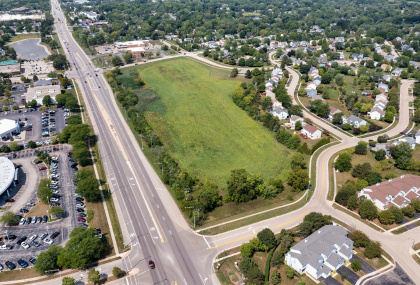
You keep control of the land when you lease an acre of it and make money from it through monthly payments. You can discuss lease terms based on where the land is located, how much people want it, and what you want to do with it, like farming, business, or entertainment.
Letting land also keeps its value, which could go up over time. You can try out different rental deals that fit your long- or short-term wants this way. It also spreads out your income.
People who own land and decide not to sell it can make steady incomes and change their plans for using it as the market changes.
Is It Better to Sell Property or Rent It Out?
When choosing whether to sell or rent out a property, especially in real estate, it’s essential to consider how to make the most money and use long-term financial growth to your advantage. If you rent out your land instead of selling it, you can get a steady run of passive income that you can use to fund other projects or save for later.
When you sell, you only get a one-time profit. But when you rent, you keep ownership of the land and could gain from it going up in value over time. Also, rental income often comes with tax breaks that can help you get a better return on your investment.
When you rent instead of sell, you retain flexibility and control over your asset. This lets you respond to changes in the market and take advantage of opportunities as they arise. Whether you should rent or sell land depends on your financial goals and whether you want long-term income or quick cash gains.
Helpful Texas Blog Articles
- How to Market Land for Sale: Top Tips
- A No-Lawyer Guide to Selling Land
- Guide To Selling A Part Of Your Land in Texas
- Selling Land To Developers In Texas
- Understanding The Vastness Of 100 Acres
- Selling Non-buildable Land In The Real Estate Market
- Can You Build on Your Land? Zoning Rules Explained
- Can You Rent Out Land Instead of Selling It?
- Comprehensive Guide To Evaluating Your Land’s Worth In Texas
- Understanding Closing Costs For Land Purchases In Texas
- How to Find Out the Zoning of My Land in Texas
- How to Sell Hunting Land in Texas
- Real Estate Commissions and Commissions on Land Sales in Texas

| LESSOR | BROKER | REAL ESTATE BROKER | POLICYHOLDER | FARMLAND | CROPLAND |
| MONEY | PASSWORD | GENERAL LIABILITY INSURANCE | LIABILITY INSURANCE | MINNESOTA | |
| IOWA | CROP PRODUCTION |
